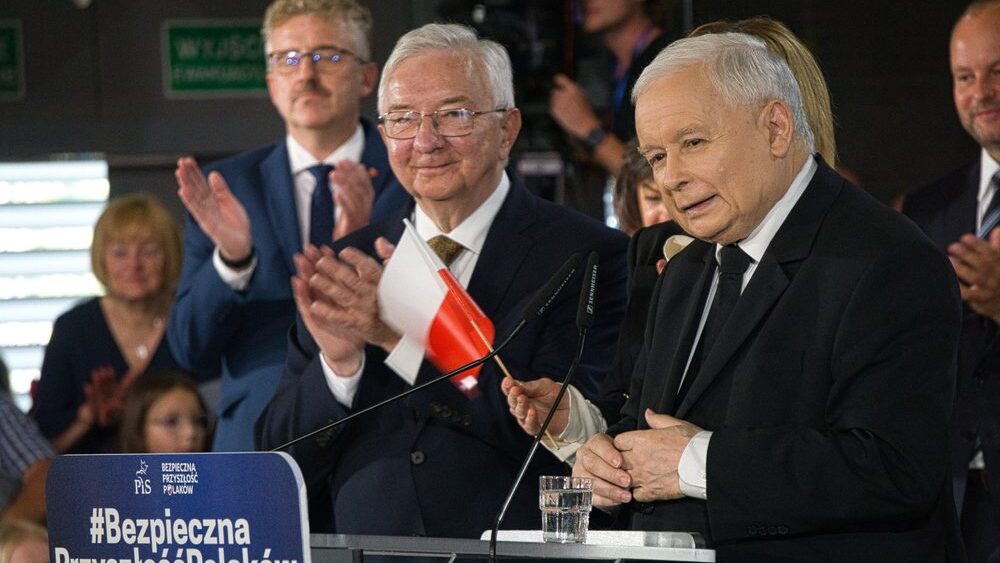
PiS Chairman Jaroslav Kaczyński speaks during the party convention in Kielce. Next to him Krzysztof Lipiec.
Photo: Lukasz Michalczyk / Shutterstock.com
Warsaw’s ruling conservative party is still feeling the fallout from a cash-for-visas scandal that exposed major flaws in the country’s migration system three weeks before Poland’s all-important national elections.
The scandal first emerged earlier this month when elements of Poland’s Ministry for Foreign Affairs were revealed to be selling visas through various third-party companies throughout Asia and Africa, radically undermining PiS’s stance on clamping down on immigration both domestically and across Europe.
The visa scam came to light when other European countries noticed an inordinate amount of migrants crossing their borders carrying Polish visas, with multiple officials being arrested for their role in the scandal.
The political fallout has not only left PiS politically exposed to both the right-wing opposition in the form of the Konfederacja party as well as the EU-backed liberal challengers led by Donald Tusk, but has also aggravated a diplomatic spat with the German government as Berlin ponders retaliatory border checks. German Interior Minister Nancy Faeser reportedly planned to announce on Wednesday, September 27th, that the country would indeed put such border controls in place.
Olaf Scholz said that Germany may close the internal borders of the EU amid the scandal between Germany and Poland.
— Sprinter (@Sprinter99800) September 24, 2023
The day before, Germany accused Poland of issuing visas indiscriminately, after which migrants go to the Germans for benefits pic.twitter.com/EvZOm0ncDr
Rather ironically, the Polish government faces a reprimand from the European Commission, as European Commissioner for Home Affairs Ylva Johansson wrote to the Polish government inquiring if EU law had been potentially broken by the scandal. Poland is already facing a border crisis on its frontier with Belarus, with the Polish embassy in Minsk accused of issuing 1,300 visas due to bribery through a Russian intermediary.
Warsaw has been in a long-running diplomatic war of attrition with Brussels over its migration policy and allegations of violating EU regulations on the ‘rule of law’ over appointments in its national judiciary, with some Polish ministers lashing out at what they see as a contrived scandal designed to undermine their government shortly before elections.
Anti-PiS federalists in the European Parliament have already sought to make political capital from the visa scandal in what could be a new front opened against Warsaw in the ‘rule of law’ saga.
Recently taking some critical stances on the Ukrainian war, including ending the supply of weapons to Kyiv and clamping down on the flow of Ukrainian grain, PiS is expected to triumph next month, a result that is already spooking EU Commission officials who had been banking on a win for progressives.
Prior to the visa revelations, PiS had killed plans to liberalise the country’s visa system, with the government planning a simultaneous referendum on the implementation of new EU-imposed quotas for asylum seekers to coincide with October’s election.
